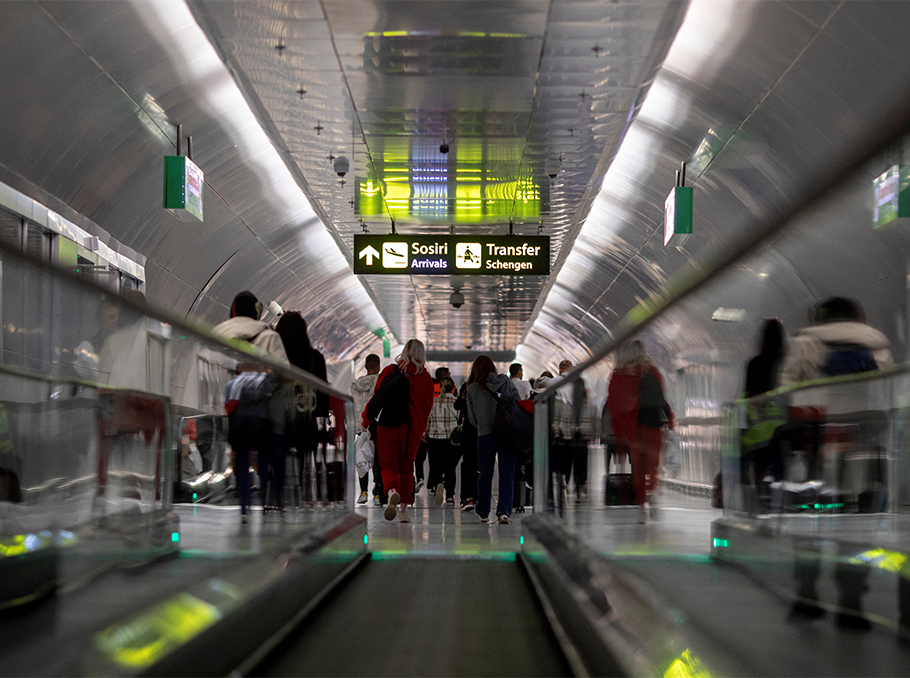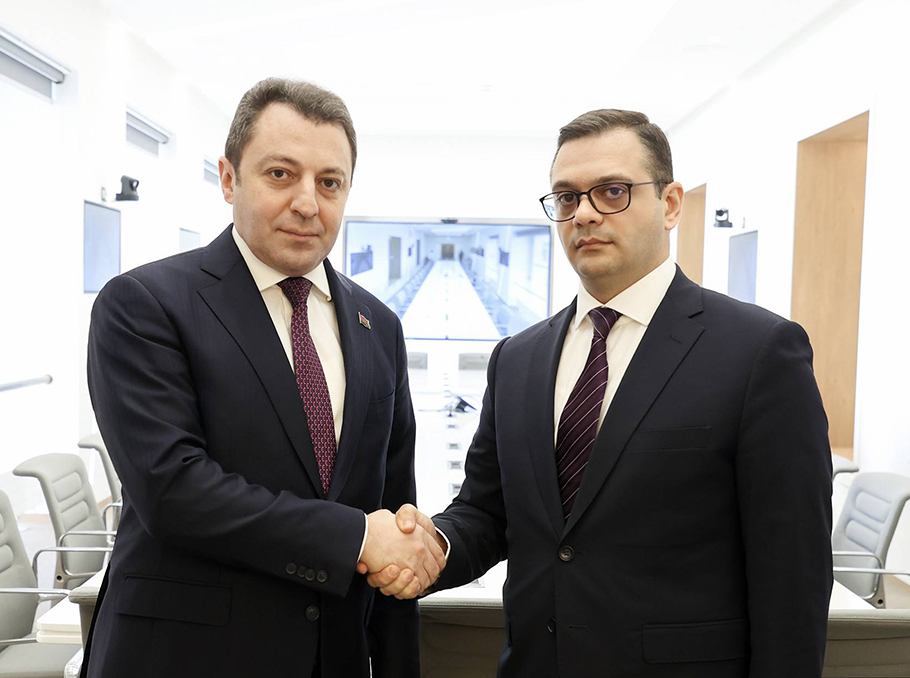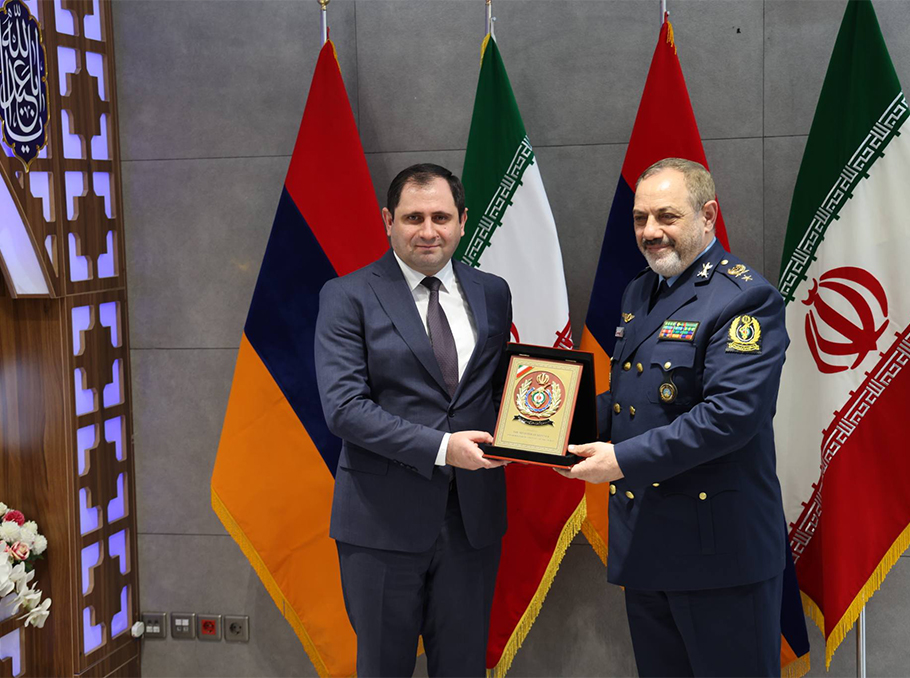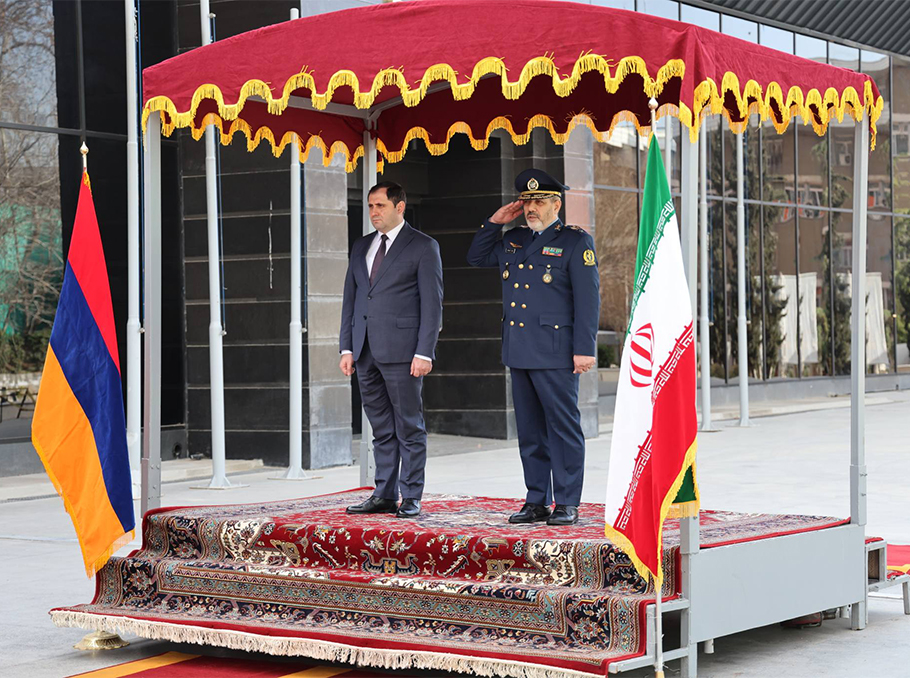The issue of visa liberalisation with the European Union (EU) has been the subject of active discussions in recent months. Many Armenian citizens are eagerly anticipating it, expecting it to significantly facilitate travel to Europe. However, to take full advantage of the potential for visa-free movement, Armenia must first address several systemic challenges – irregular migration, misuse of the asylum system, documentation gaps, etc. While the public looks forward to the possibility of traveling to EU countries without a visa, negotiations on visa liberalisation between Armenia and the European Union are actively on-going.
Mediamax spoke with the EU Delegation to Armenia, and Haykanush Chobanyan, Deputy Head of International Cooperation Department at the Ministry of Internal Affairs of the Republic of Armenia, about the negotiation process, key challenges, and Armenia’s next actions.
The EU-Armenia dialogue
The EU-Armenia visa liberalisation dialogue was launched on 9 September in Yerevan.
“Following a subsequent technical mission opening an operational phase of the dialogue, and appointment of senior official on both sides, two expert missions to Yerevan took place in February and April 2025 to enable experts from the EU institutions and member states to conduct a gap analysis. The results of these missions will help to establish the list of conditions necessary to achieve the long-term objective of visa-free travel for Armenian citizens to the EU (Visa Liberalisation Action Plan). The process is merit-based, it will last as long as it is necessary,” the EU Delegation to Armenia responded.
It was also noted that irregular migration is one of the fields subjected to scrutiny under the expert missions. The other areas include document security, border and migration management, and asylum policies, combating corruption and organised crime, data protection, judicial cooperation in criminal matters, external relations and fundamental rights.
“The assessment and definition of relevant benchmarks concerning irregular migration and other fields covered under visa liberalisation dialogue is currently under preparation, and will be set out in the Visa Liberalisation Action Plan,” the EU Delegation also said.
The path to liberalization
Haykanush Chobanyan, Deputy Head of the International Cooperation Department at the Ministry of Internal Affairs of Armenia, who is coordinating the EU visa liberalisation process on behalf of Armenia, said that the process is currently in the preparatory phase, making it too early to predict a timeline for completion. For example, the process took five years for Georgia, four for Moldova, and nine for Ukraine.
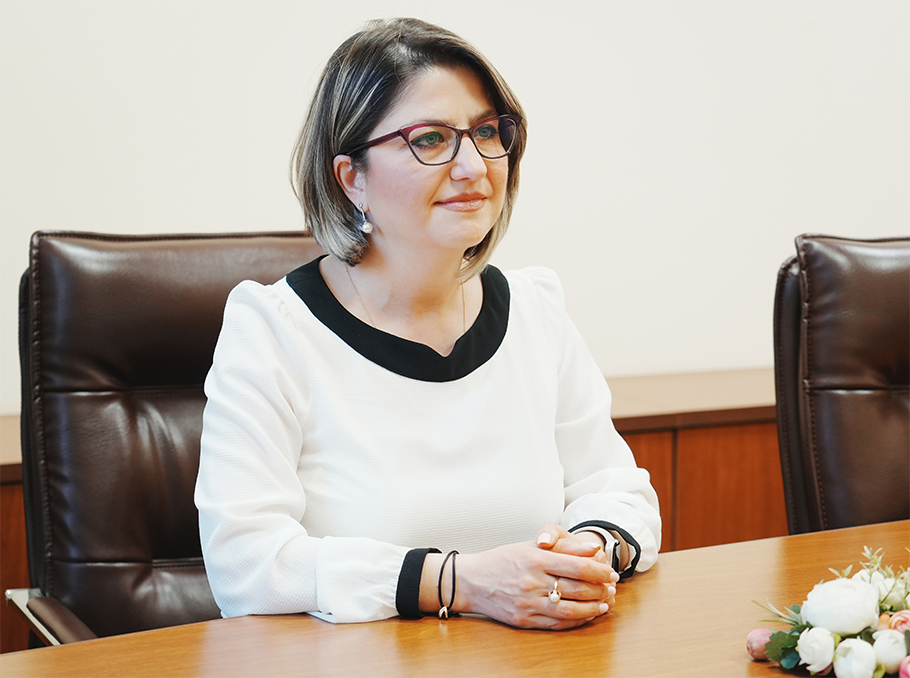 Haykanush Chobanyan
Haykanush Chobanyan Photo: Mediamax
“The Action Plan includes four components. The first two concern document security, border and migration management, and asylum policy. The third addresses internal security issues, including the fight against organized crime, trafficking, and corruption. The fourth focuses on human rights, fundamental freedoms, external relations, and the ratification of fundamental documents. Two EU fact-finding missions have already been conducted, and these have provided sufficient input for the development of an Action Plan. After each mission, within a month, the EU compiles a report summarizing the collected data. These reports are shared with the Armenian side for comment, although Armenia cannot propose substantive changes, as the documents are prepared solely by the EU. We have already received the first report and submitted our comments. We are still waiting for the report from the second mission. Based on both reports, the EU will formulate recommendations, which are then submitted to the European Commission. The Commission will use them to develop an Action Plan, followed by the definition of performance benchmarks,” the deputy head of the department said.
Chobanyan emphasized that issues such as infrastructure, technical capacity, the availability of biometric passports, and data protection are also taken into account. The document is not subject to negotiation – the requirements outlined by the EU are binding, and a “green light” will only be granted if these conditions are fully met.
At present, Armenia does not yet have a finalized Action Plan. Once it is available, the government intends to share it publicly to ensure transparency and awareness of the obligations involved.
“In our contacts with EU partners, we emphasize the importance of setting realistic standards – not so ambitious that implementation drags on for years, but also not so stringent and rushed that they become unattainable. We are currently working actively with EU partners in various formats to provide a comprehensive picture of our situation – including our priorities, needs, and the sectoral reforms that have already been implemented. We are trying to be realistic, we are not saying that everything has been done and there are no problems, but we are confident that it will be possible to implement them within a few years,” Haykanush Chobanyan stressed.
Problems may affect EU decisions
Not only the state, but also society must be ready for visa liberalisation. If there is a large flow from Armenia to EU countries after liberalisation, Armenian citizens will be among the top three abusers of the EU’s asylum system.
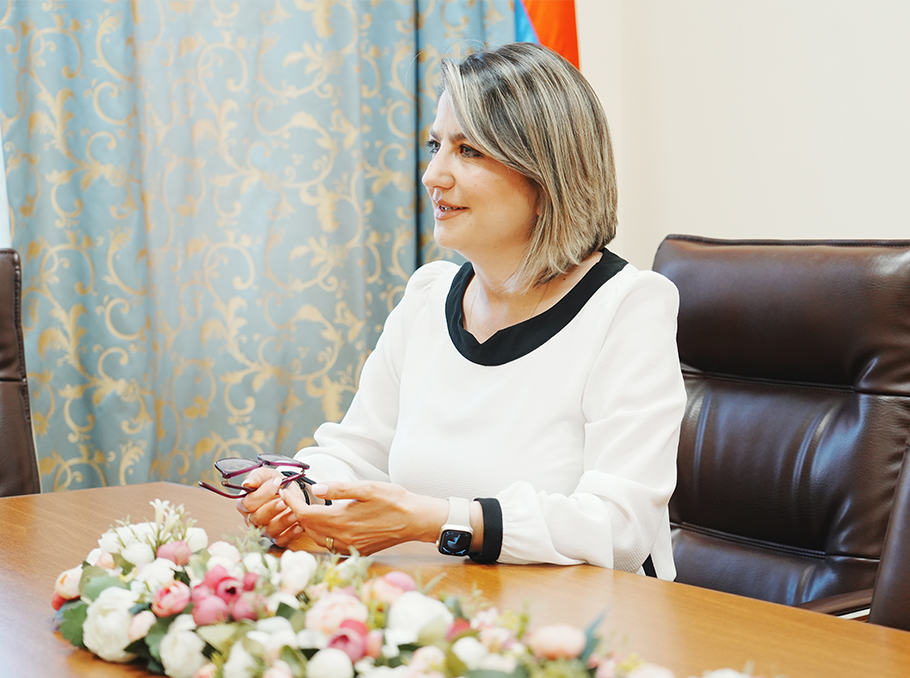 Haykanush Chobanyan
Haykanush Chobanyan Photo: Mediamax
“An increase in irregular migration and the number of return decisions could create significant problems for the country. These issues may affect EU decisions. In Georgia’s case, we often hear about the possible suspension of the visa-free regime. Our society must understand that gaining this privilege is difficult and it must be preserved and evaluated,” noted Haykanush Chobanyan
According to Eurostat, approximately one million illegal migrants were recorded in the EU in 2018. Of that number, 0.4% – or 2,310 individuals – were Armenian citizens. This figure dropped to 0.3% in 2019 and has since continued to decline, reaching 0.2% in recent years. As for the asylum figures, in 2019, Armenian citizens submitted 3,730 asylum applications to EU countries, a number that fell to 2,100 in 2021. It rose slightly to 5,175 in 2023 before declining again to 4,310 in 2024.
“The number of individuals granted refugee status is also a critical indicator. In 2019, 9.8% of Armenian applicants received protection. That figure dropped to 3.8% in 2022 and now stands at just 3%. This is a good trend, indicating that most applications lack sufficient grounds for refugee status. Armenia is increasingly recognized as a safe country of origin. At the same time, migration policy has been significantly tightened across EU member states in recent years, which in turn reduces the chances of obtaining refugee status. In the event of visa liberalisation, statistics will continue to be monitored, it is important that we avoid any sudden spikes,” said the Deputy Head of the International Cooperation Department.
Key points for preventing irregular migration
The EU has clear tools that will be used when an individual attempts to enter the EU with false documents or appears there in an irregular situation and does not want to return. Biometric passports, in particular, are expected to play a vital role in preventing such scenarios. At the time of border crossing, biometric data will be used to verify a person’s identity and if that individual appears in the status of an illegal migrant, abuses the asylum system or engages in unlawful activities, he/she will be identified and returned to his/her country.
“Irregular migration poses one of the risks of visa liberalisation. All our actions are focused to ensure that people do not choose that way, do not overload the asylum system of any country, because it is, first of all, for those who really need it. We are concerned about cases where individuals attempt to resolve personal issues – such as medical conditions – through the asylum system. Applicants are considered to have legal status while their cases are being processed. This is the reason why some people apply for asylum on the grounds of health problems and overload the system before a decision is made, because it is necessary to study the application, provide support measures - food, clothing, education of children. All this is an additional burden for the social services of the receiving country,” she said.
Equally troubling are instances in which rejected asylum seekers avoid voluntary return and attempt to exploit legal loopholes to remain in the EU. Some reapply in an attempt to legalize their status and extend their stay. This continues until all possible options are exhausted and the deportation becomes inevitable.
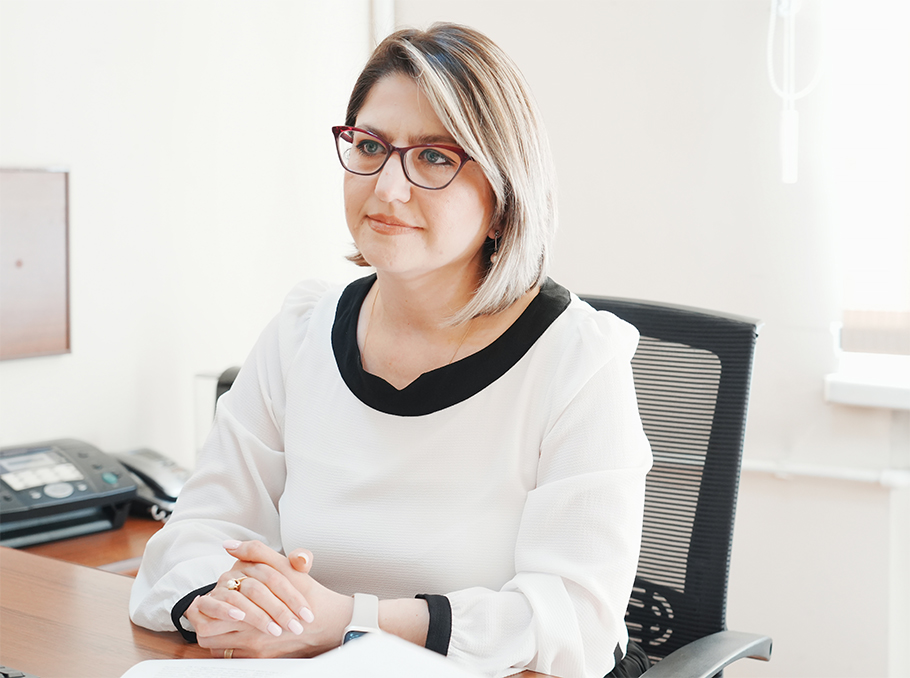 Haykanush Chobanyan
Haykanush Chobanyan Photo: Mediamax
“The Armenia-EU readmission agreement plays an important role here, within the framework of which Armenian nationals residing illegally in EU territory are returned to Armenia, and our country is obliged to accept them back,” said Haykanush Chobanyan.
Tightening the policy
In 2019, the EU issued 3,755 return decisions concerning Armenian nationals. By 2023, that number decreased to 2,860. However, only 23.6% of those decisions were actually implemented. The rest either moved to another country or continued living in irregular status.
“This behaviour is not unique to Armenian citizens. In response to this, the European Union recently adopted a new framework - Common European System for Returns. Under the new system, if one EU member state issues a return decision for a person, it is automatically recognized and enforced by all other EU countries. In other words, if Germany decides that a person should be returned, that decision is considered valid in all EU countries. This improves the asylum system, since they do not accept the application in the new country and do not waste time examining it,” noted Haykanush Chobanyan.
The change took place in March 2025. It is also planned to tighten the asylum procedures. For example, if citizens of countries with visa-free access to the EU apply, their applications will be processed through an accelerated procedure. The application can be processed within a few hours to 15 days.

Photo: REUTERS
“Many countries have dedicated facilities at airports where asylum seekers can submit their applications and await a decision without officially entering the country. If an application is denied, the individual is offered the option of voluntary return, sometimes supported by financial assistance or reintegration programs – such as funding to start a small business. This ensures a respectful return process. If the person refuses voluntary return and has no legal grounds to remain, forced return measures can be implemented, often accompanied by an entry ban,” she said.
The EU is also changing its border management system, through the introduction of the European Travel Information and Authorization System (ETIAS). This system includes information on return. If a person has already been deported or has an entry ban, this information is stored in the system. The purpose of this change is to prevent entry ban fraud and establish stricter data control.
Shared responsibility
“Keeping track of the changes in EU’s migration and asylum policy and legislation is very important, as they directly impact our mobility. Equally important is ensuring that accurate and reliable information reaches the public. For years, we have been emphasizing the risks of irregular migration to counter spread of misinformation and myths. When a person has no other choice, he/she often chooses irregular paths, filled with risks and losses. Some groups exploit people’s ignorance for their own interests. This harms not only these individuals, but also Armenia’s international reputation. We have implemented numerous measures to curb asylum abuses, but ignorance often leads to desperate decisions and bitter consequences,” said Haykanush Chobanyan.
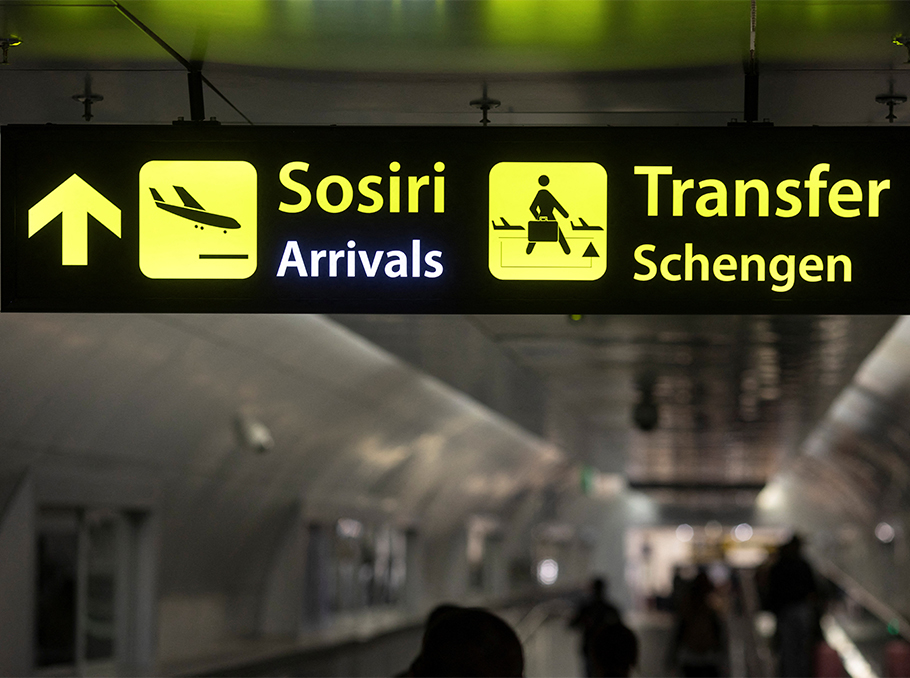
Photo: REUTERS
She also emphasized that the visa-free travel does not mean unrestricted movement. Travellers will still be required to present specific documentation at border control, including a biometric passport, return ticket, a hotel reservation, a bank statement. In this regard, Armenia has studied Georgia’s experience. It turned out that after the new regulations came into force, citizens of that country were often not allowed to leave due to the lack of necessary documents.
“Our action plan also includes steps to develop the capacity of border guards and make their work more effective. EU countries are also introducing eGates systems that verify biometric data. We also plan to introduce such systems, but this requires all travellers to possess biometric passports,” noted Haykanush Chobanyan.
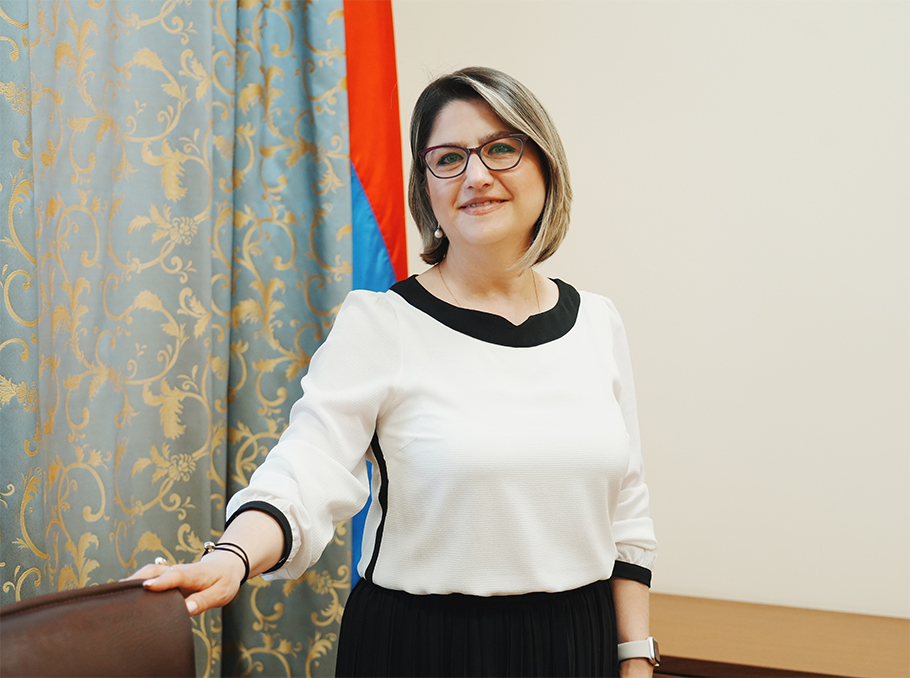 Haykanush Chobanyan
Haykanush Chobanyan Photo: Mediamax
She stressed that while addressing irregular migration, legal channels should be encouraged.
“With an ageing population in Europe, there is a demand for both highly and low-skilled workers. These opportunities should be used legally, without abusing the asylum system. Legal channels, such as work visas, study visas, family reunification and marriage, should be seen as sustainable solutions,” she explained.
The opportunity to travel with dignity
Haykanush Chobanyan emphasized that visa liberalisation does not mean increasing opportunities for permanent residence, employment, or access to healthcare in the European Union, it simply facilitates travel procedures.
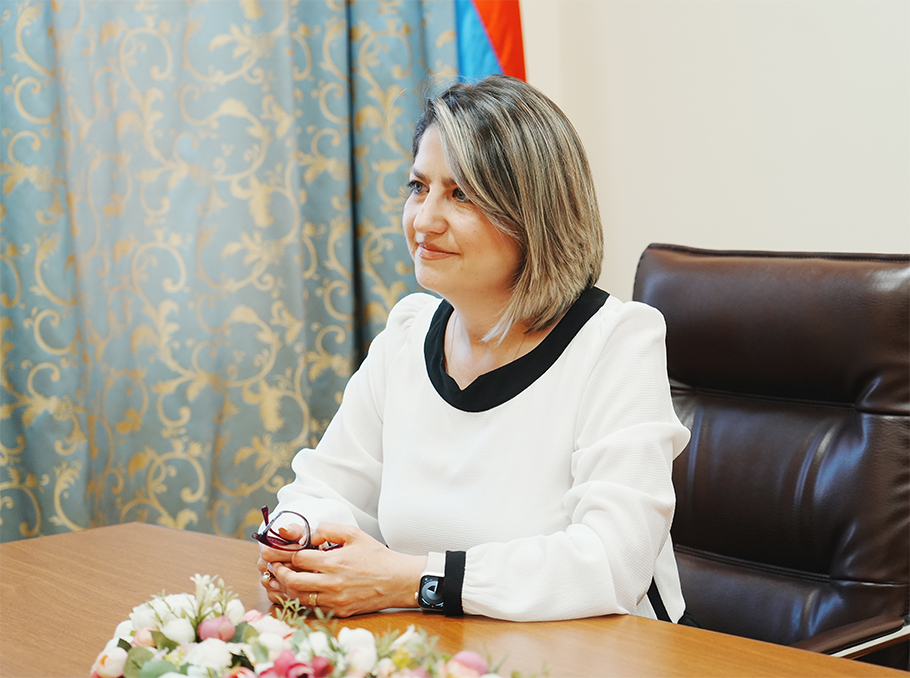 Haykanush Chobanyan
Haykanush Chobanyan Photo: Mediamax
“The EU is aware that the readmission system is working, that our state is actually able to use this toolkit correctly, identify irregular migrants and accept them back. Efforts and resources are also being invested in integration. This also provides an opportunity to continue negotiations to advance the interests of the country and provide our citizens the opportunity to travel with dignity,” noted Haykanush Chobanyan.
In conclusion, she noted that the visa liberalisation process is a work that requires joint involvement of the government and society. There are no insurmountable obstacles for Armenia in this process, but achieving this goal demands consistent and coordinated efforts.
This article was produced within “Reinforcement of the Migration Management System in the Republic of Armenia” project implemented by People in Need. The project is co-funded by the European Union through the Migration Partnership Facility (MPF) implemented by the International Centre for Migration Policy Development (ICMPD).
Ani Khchoyan
Photos by Agape Grigoryan









